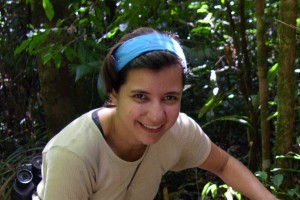
Malu Jorge
Associate Professor NTT, Earth and Environmental Sciences
My research interest is to understand how large mammals choose the habitats they use and how human activities (e.g. land-use and land-cover changes) affect their long-term persistence. Large mammals are fundamental for community and ecosystem structure as they usually represent the largest biomass of an area, they occupy distinct trophic levels (top predators, meso-predators, herbivores) and they are frequently the first ones to disappear from areas where there is human interference, because of direct (poaching) and indirect effects (habitat reduction, increased isolation, domestic diseases).
I have been conducting my research in Brazilian ecosystems because Brazil harbors one of the world’s greatest diversity of species and ecosystems, and a gradient of history of human exploitation, with some ecosystems with more than 100 years of land change, others with less than 50 years of land change, and few with large tracts of continuous pristine habitats. Also, as Brazil’s economic growth is intensified, so are the challenges of maintaining economic growth and preserving natural systems and biodiversity. Understanding the effects of land use and land-cover change on Brazilian ecosystems will help in efforts to reduce biodiversity loss and harmful effects on ecosystem function at local and regional scales, as well as on the global scale.